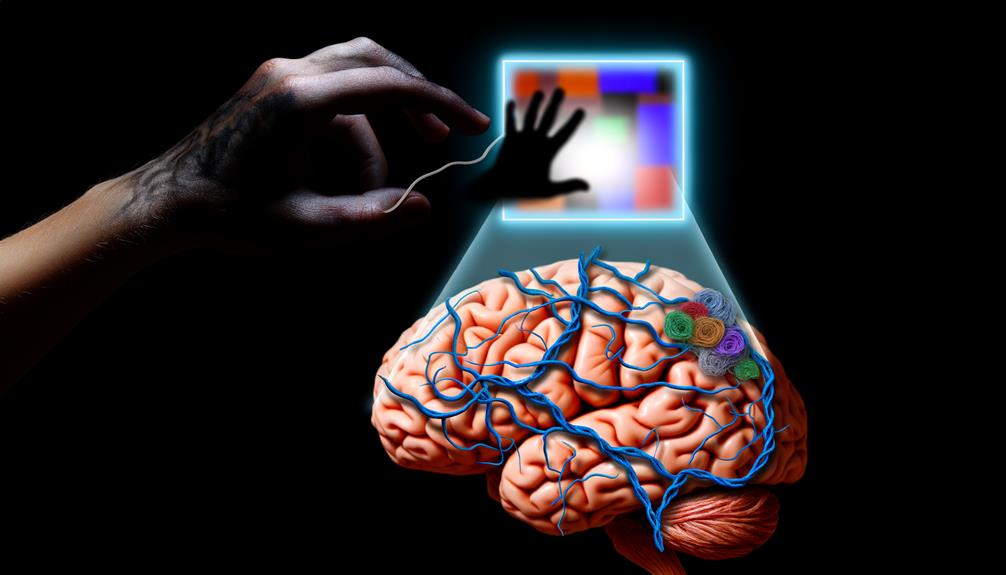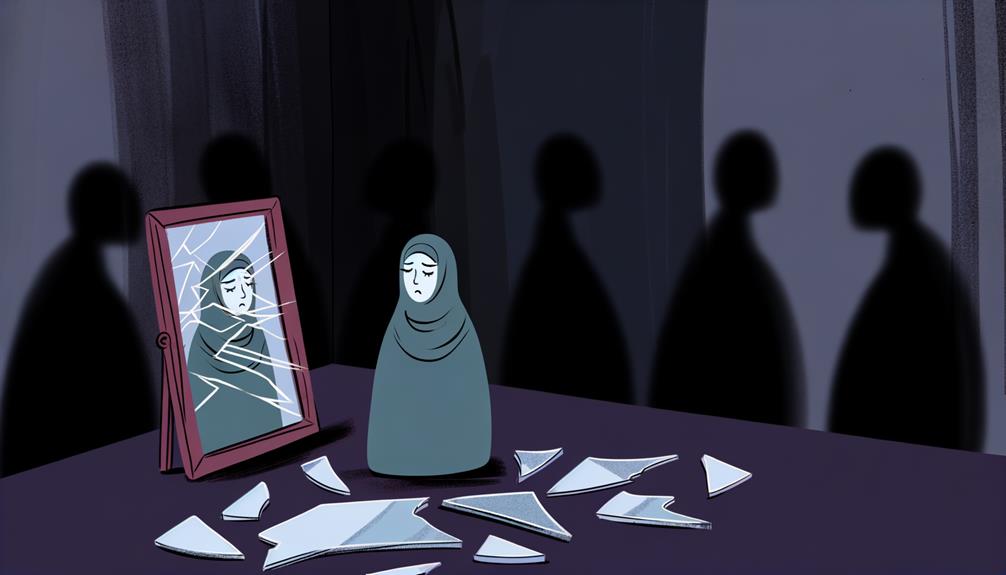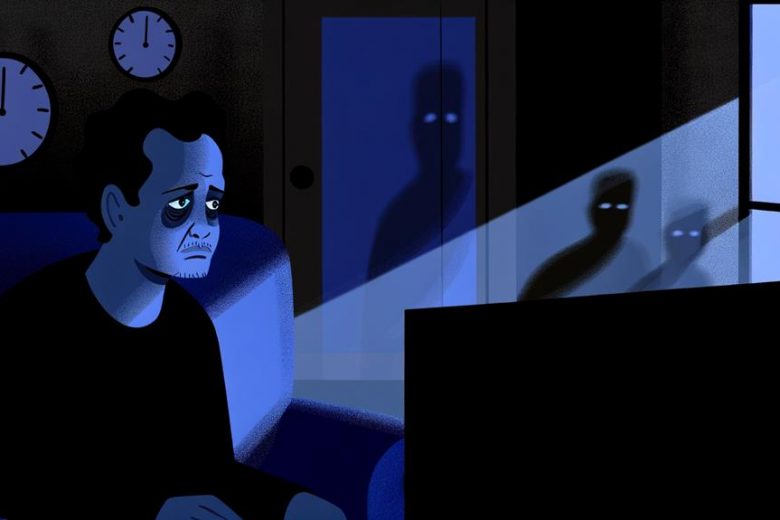You might wonder if there's a connection between trauma and the consumption of pornography among abuse survivors. It's not uncommon for individuals who've experienced abuse to turn to porn as a way to cope with their complex emotions. The feelings of shame and confusion about one's own sexuality can lead to a troubling normalization of unhealthy sexual behaviors. Studies suggest that early trauma plays a significant role in the development of such behaviors. But how deep does this connection go, and what can be done to support those affected? Let's explore the intricate relationship between abuse, trauma, and pornography use.
Contents
Early Exposure and Developmental Impact
Imagine being just nine or ten years old, steering through the complexities of childhood, and suddenly encountering explicit pornographic material. This early exposure to pornography can profoundly impact your sexual development, especially if you've already experienced trauma and abuse. At such a tender age, your understanding of sexuality is still forming, and seeing these explicit images can distort your perceptions of body and sexuality.
Research shows that early exposure to pornography can lead to developmental arrest, leaving you confused and distressed about your sexual identity and how to navigate intimate relationships. You might find yourself grappling with compulsive sexual behavior as a way to cope with unresolved emotional pain. This maladaptive coping mechanism often stems from the trauma you've endured, creating a vicious cycle that's hard to break.
Moreover, exposure to pornography at such a young age can normalize unhealthy sexual attitudes. You may start to believe that what you're seeing is how relationships and sex should be, which can severely impact your ability to form healthy intimate relationships later in life. This normalization can also reinforce patterns of trauma and exploitation, making it even more challenging to escape.
Long-term consequences of early exposure include difficulties in maintaining healthy intimate relationships and a tendency toward compulsive sexual behavior. These challenges are not just theoretical; they're backed by studies showing strong correlations between early exposure to pornography and these adverse outcomes.
In essence, the trauma and abuse you've experienced, combined with early exposure to pornography, can derail your sexual development, leading to a lifetime of maladaptive coping mechanisms and unhealthy sexual attitudes.
Case Studies and Personal Experiences

Steering through real-life stories and personal experiences, you can see the profound impact that early exposure to pornography and abuse has on individuals. Many victims of abuse report turning to pornography as a coping mechanism to manage the emotional pain associated with their trauma. This often leads to compulsive behaviors, making it difficult for them to break the cycle of dependency.
Case studies reveal that people with adverse childhood experiences (ACEs) frequently exhibit higher rates of pornography consumption in adulthood. This suggests a link between early trauma and later sexual compulsivity. For instance, individuals who faced sexual abuse in childhood may develop distorted perceptions of intimacy and sexuality, which can be reflected in their pornographic preferences. These preferences can sometimes serve as a way to replay and control traumatic experiences, albeit in a maladaptive manner.
Personal accounts from survivors highlight the struggle with feelings of shame and guilt related to their porn use. This emotional burden often complicates their recovery process, as they may feel isolated and misunderstood. The connection between trauma and compulsive pornography use underscores the importance of trauma-informed care in treatment programs. By addressing the root causes of trauma, these programs can help survivors regain healthier sexual perspectives and coping mechanisms.
You'll find that a trauma-informed approach not only acknowledges the complex relationship between abuse and pornography but also provides compassionate strategies for healing. It is crucial to understand that for many, pornography isn't just a habit but a response to deep-seated trauma, requiring nuanced and empathetic care.
Adverse Childhood Experiences (ACEs)

Adverse Childhood Experiences (ACEs) play a critical role in shaping an individual's psychological and behavioral patterns, particularly when it comes to sexual health and behavior. These experiences, which often involve abuse and neglect, have been closely linked to the development of compulsive sexual behaviors, including pornography consumption. Understanding the impact of childhood trauma can help you grasp why someone might turn to such behaviors as a coping mechanism.
Research shows a dose-response relationship: the more ACEs you experience, the higher your risk for problematic sexual behaviors. If you've faced multiple adverse childhood experiences, you might find yourself struggling with pornography addiction or other compulsive sexual behaviors as an adult. This isn't just anecdotal; studies consistently confirm that early trauma disrupts sexual development and complicates intimate relationships later in life.
For many, feelings of shame and confusion about their sexual behaviors are common. You may have these feelings if you're dealing with childhood trauma. It is crucial to recognize that these emotions are a typical response to the complex interplay between trauma and sexual behavior. Approximately 60% of adults have experienced at least one ACE, suggesting that many people could be at risk for developing unhealthy sexual habits, including pornography addiction.
Screening for ACEs should also include questions about early exposure to explicit material. Such exposure can distort your perceptions of intimacy and contribute to ongoing trauma-related issues. By understanding the connection between adverse childhood experiences and sexual behavior, you can begin to address the root causes of these challenges and seek appropriate help.
Neuroscience of Porn Addiction

Understanding the neuroscience of porn addiction reveals how deeply rooted and complex this issue can be. When you consider the neurobiological impact, it becomes evident that the brain of a porn addict undergoes significant changes, akin to those seen in substance abusers. These structural and functional modifications underscore the severity of compulsive behaviors tied to porn use.
Central to this cycle is dopamine, a neurotransmitter released during porn consumption that reinforces addictive behaviors. Over time, the brain's reward system requires more intense material to achieve the same level of pleasure, leading to increased tolerance and desensitization to sexual stimuli. This desensitization can distort perceptions of intimacy and relationships, further exacerbating the addiction.
Trauma plays a significant role in this process. Neuroscience studies indicate that traumatic experiences can alter brain pathways, making individuals more vulnerable to developing compulsive behaviors, including porn addiction, as a maladaptive coping mechanism. The link between trauma and porn addiction highlights the need to address underlying psychological pain as part of the recovery process.
Effective treatment strategies must consequently consider both the addiction and the trauma that often underlies it. Approaches that combine neurobiological understanding with psychological support are essential for breaking the cycle of addiction. Techniques like cognitive-behavioral therapy (CBT), which targets compulsive behaviors, and trauma-focused therapies, which address the root causes, can be particularly beneficial.
Betrayal Trauma Dynamics

When you discover a partner's pornography habits, it can feel like a profound betrayal, shattering your trust and leaving you with symptoms akin to post-traumatic stress. Studies show that 70% of spouses in counseling report such distress, emphasizing the deep emotional impact. This betrayal often triggers a cycle of unhealthy coping mechanisms, exacerbating feelings of shame, isolation, and mistrust.
Partner's Porn Discovery
Discovering a partner's use of pornography can, in and of itself, trigger profound feelings of betrayal and trauma. This event often leads to what is known as betrayal trauma, where the emotional distress stemming from the revelation can be overwhelming. Studies show that about 70% of spouses in counseling report symptoms akin to post-traumatic stress disorder due to their partner's porn use.
The fallout of such a discovery isn't just limited to immediate emotional pain. It can spiral into:
- Compulsive behaviors in an attempt to cope.
- Intense emotional distress impacting daily life.
- Feelings of shame and isolation.
- Confusion about the relationship's future.
- Challenges in recovery processes, requiring professional therapeutic support.
Addressing betrayal trauma necessitates a thorough approach. Recognizing the interconnectedness between a partner's compulsive porn use and your trauma is vital. The emotional distress you experience might seem insurmountable, but understanding that these feelings are valid and part of a broader betrayal trauma dynamic can be the first step toward healing.
Therapeutic support can be invaluable in steering through these turbulent times. Open communication and dedicated recovery processes are essential in rebuilding trust and moving forward, both individually and within the relationship.
Symptoms of Betrayal
The emotional upheaval caused by discovering a partner's pornography use can manifest in various distressing symptoms, known collectively as betrayal trauma dynamics. When someone you trust violates your expectations, it can lead to profound emotional distress. Research shows that about 70% of spouses in counseling report symptoms akin to post-traumatic stress disorder after such discoveries, underscoring the severe impact on mental health.
Feelings of shame and confusion often accompany betrayal trauma, complicating your relationship with sexuality. You might find yourself grappling with compulsive behaviors, including pornography consumption, as a maladaptive coping mechanism. This cycle of emotional distress and compulsive behaviors can further erode intimacy and trust, essential components of a healthy relationship.
The dynamics of betrayal trauma can create a vicious cycle where initial emotional pain drives you to seek solace in pornography, which in turn exacerbates your emotional turmoil. Struggling with intimacy issues, you might resort to pornography as a means of escape, further impacting your mental health and relational dynamics. Understanding these patterns is vital for developing healthier coping mechanisms and rebuilding trust and intimacy in your relationships.
Strategies for Recovery

In the aftermath of experiencing trauma, finding effective strategies for recovery is vital for healing and regaining control over one's life. It's important to understand that your path to recovery can be multifaceted, involving various therapeutic and supportive approaches that cater to your specific needs.
One of the foundational elements is trauma-informed care, which acknowledges how past experiences influence your present behaviors. This approach emphasizes safety, trustworthiness, and empowerment, helping you feel understood and supported.
Cognitive Behavioral Therapy (CBT) is another effective tool. CBT helps you identify and modify negative thought patterns associated with porn use, replacing them with healthier coping mechanisms. This can be particularly beneficial if you find yourself using porn as a way to escape or numb emotional pain.
In addition, support groups like Sex Addicts Anonymous can provide a sense of community and shared experience. Hearing others' stories and sharing your own can enhance your recovery by fostering mutual understanding and accountability.
Mindfulness practices are also significant. Techniques such as meditation and deep breathing can help you manage cravings and promote emotional regulation. These practices encourage you to stay present and reduce the impulse to engage in compulsive behaviors.
Lastly, educating yourself about the effects of porn addiction and learning from others' recovery journeys can inspire hope and resilience.
- Trauma-informed care: Understanding the impact of past trauma.
- Cognitive Behavioral Therapy (CBT): Modifying negative thought patterns.
- Support groups: Community and accountability.
- Mindfulness practices: Managing cravings and emotional regulation.
- Education on porn addiction: Inspiring hope and resilience.
Role of Community Support

For many, community support becomes a lifeline in the recovery process, offering both empathy and practical assistance. As a survivor of abuse, engaging with a supportive community can provide you with a safe space to share your experiences and feelings without fear of judgment. This environment is essential for emotional support, helping you feel understood and less isolated.
Support groups, such as those organized by Sex Addicts Anonymous, are particularly effective. These groups create a structured space for accountability and encouragement, enabling you to confront your use of pornography and explore its deep-seated roots in trauma. Members of these groups share similar struggles, making it easier to discuss sensitive issues like sexual development and the impacts of trauma on behavior.
Online platforms also offer significant benefits. Their anonymity and accessibility mean you can connect with others who've faced similar challenges, reducing feelings of isolation and shame. This digital form of community support can be a vital component of your recovery, especially if in-person meetings are not feasible.
Community initiatives and awareness campaigns further enhance the supportive environment. By educating the public on the long-term effects of trauma and promoting healthier discussions around sexuality, these efforts help foster a more understanding and supportive community for survivors like you.
Engaging with resources such as the Blue Knot Foundation can also be invaluable. They provide emotional support and guidance, helping you navigate the complexities of trauma and its influence on behaviors like pornography consumption. In sum, community support offers a multifaceted approach to recovery, addressing both emotional and practical needs.
Conclusion
In understanding the connection between abuse and pornography consumption, you can see that trauma profoundly shapes survivors' sexual behaviors and coping mechanisms. Early exposure to trauma often leads to compulsive pornography use, driven by unresolved emotional pain and confusion. By acknowledging the role of Adverse Childhood Experiences and betrayal trauma, you recognize the need for thorough recovery strategies that include community support. Addressing these issues with empathy and evidence-based approaches is essential for healing and reclaiming healthy sexual attitudes.
